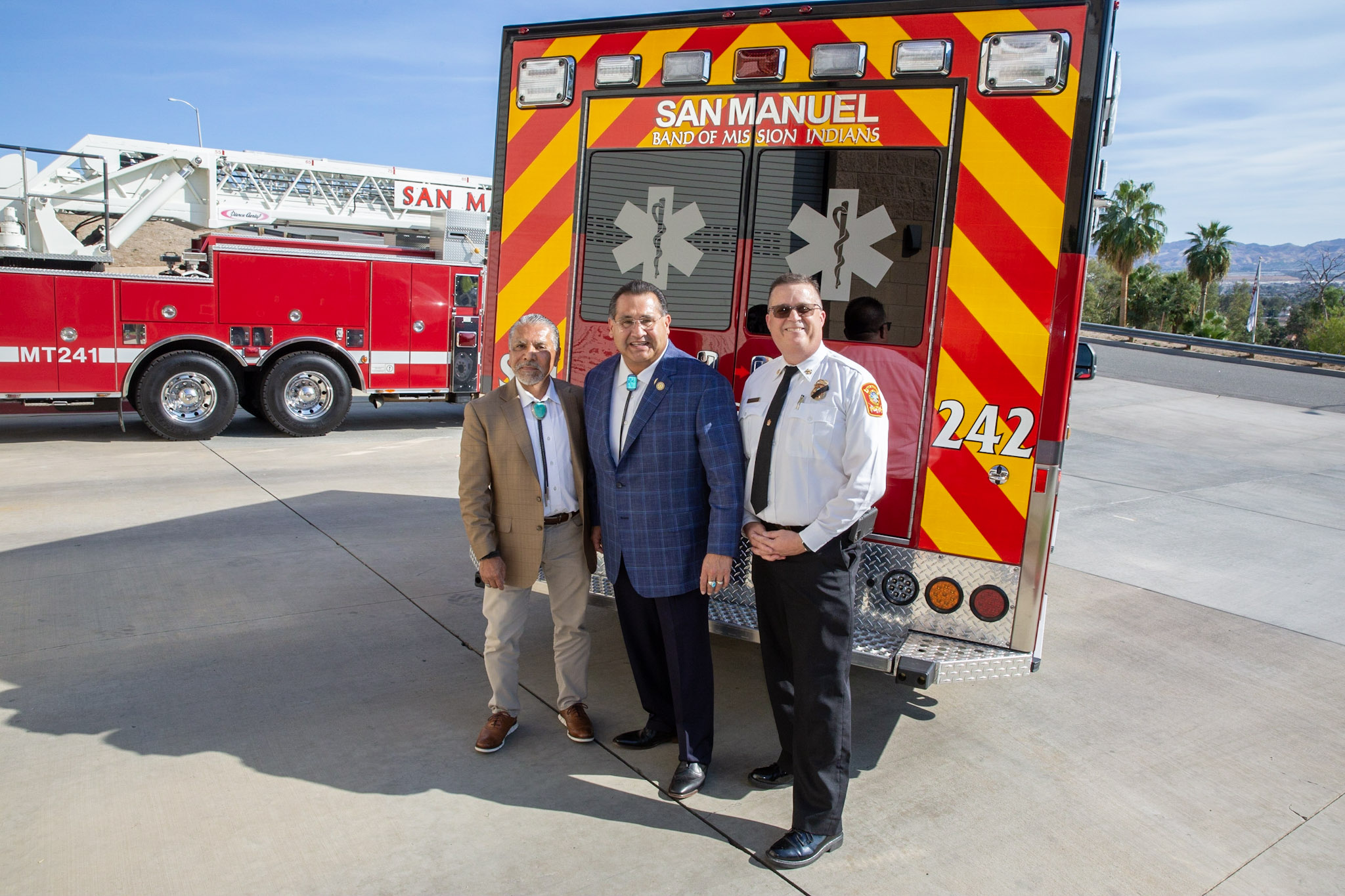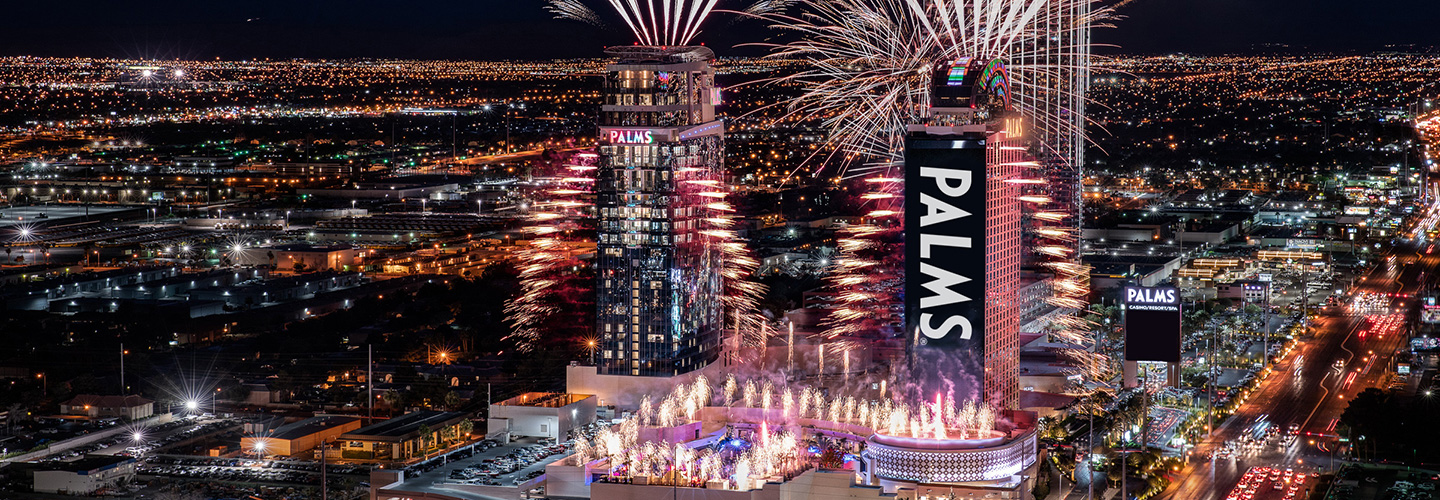
Passage of AB 798 allows federally recognized Tribes to certify and operate their own emergency ambulances
Highland, Calif. (September 29, 2021) — Governor Gavin Newsom signed AB 798 into law September 24, validating that federally recognized tribes maintain authority over the certification and regulation of their ambulances, a right that other government entities hold. The bill's passage affirms tribal sovereignty over safety and wellness recognizing the right of tribal governments to own and operate their own ambulances and supplement ambulance availability to neighboring communities. Ambulances are in short supply due to the resurgence in COVID cases.
AB 798 — sponsored by San Manuel Band of Mission Indians and carried by Assemblymember James — amends relevant sections of the Vehicle Code, relating to emergency vehicles. Currently, public or government entities operating ambulances are not required to undergo certification and inspection from the Department of Transportation Commissioner. They are not required to maintain drivers that have to submit a fingerprint card, and are identified as authorized vehicles, among other requirements and recognitions. The Legislature unanimously voted to amend the bill and allow federally recognized tribes the same lifesaving rights afforded other governments.
Additionally, the bill brings lifesaving services to the community at large through mutual aid agreements with tribal governments. Due to the pandemic, high call volume paired with the shortage of paramedic workers slowed emergency response time to reservations in the past year. According to the American Heart Association, every minute saved in providing lifesaving support to someone experiencing a cardiac event, increases survival up to 10%. Now, with the passage of AB 798, federally recognized tribes in California, can be the first to respond within minutes to their Tribal citizens and neighboring residents — an action that historically was impossible as the tribe relied on neighboring healthcare entities to provide aid.
San Manuel Band of Mission Indians Chairman Ken Ramirez applauds the governor and the state legislature for honoring the lives of tribal citizens in the state. “Our challenges licensing an ambulance on the Reservation are not isolated to San Manuel but are universally faced by tribes across the state,” Chairman Ramirez says.
“By working government-to-government with the state on this legislation we help our brother and sister tribes save lives today and well into the future as they grow and develop their emergency services.” Chairman Ken Ramirez is also grateful for Assemblymen Ramos’s advocacy for more rights for tribal members.
“By unanimous vote, the California Legislature affirmed that tribes are more than capable as first responders and emergency services partners to ensure the calls for medical aid and transport are given the golden standard,” Chairman Ramirez says. “We thank the governor, legislature and Assemblymember James Ramos for recognizing that tribes like San Manuel are committed and able emergency services managers and partners.”
About the San Manuel Band of Mission Indians
The San Manuel Band of Mission Indians is a federally recognized American Indian tribe located near the City of Highland, Calif. The Serrano Indians are the indigenous people of the San Bernardino highlands, passes, valleys and mountains who share a common language and culture. The San Manuel Reservation was established in 1891 when the Tribe was recognized as a sovereign nation with the right of self-government. As an indigenous community, the origins and history of the San Manuel Band of Mission Indians stem from our relationship with the land and to all who share it. Since ancient times we have expressed ourselves through a culture of giving. Today, San Manuel is able to answer the call of Yawa' (Serrano word meaning “to act on one's beliefs”) through partnerships with charitable organizations. San Manuel has drawn upon its history, knowledge, expertise and cultural values to direct its philanthropic giving to the local region, as well as to Native American causes nationwide. For more information, visit http://www.sanmanuel-nsn.gov


